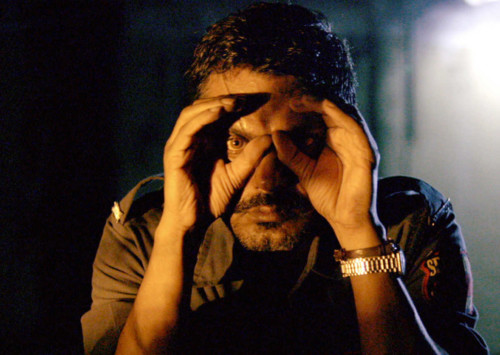Poorna Review: Rahul Bose justifies a sports biopic delightfully
‘Poorna’ is an inspirational tale that chronicles the journey of a 13-year-old, tribal girl from Telangana to the pinnacle of the world’s highest mountain peak. Rahul Bose’s second directorial venture has evolved from being just a biopic to an anecdote that not too many would care to document as a commercial pursuit.
The narrative is based on a real story of Malavath Poorna, who goes against all the odds like societal prejudice and poverty to become the youngest female climber to conquer the Everest, in 2014.
‘Dangal’ was an account of two Indian girls, who made it big in wrestling and the message that might have been an incognito in the Indian theatres with ‘Dangal’ might have found the right recipients in the theatres that witnessed people shedding tears watching Poorna raise the tricolour on the peak of the Everest. Whether ‘Dangal’ was the best India could have produced as a sports biopic was the question that I had then raised (which was met with a largely uproarious disdain). I would rather not go into a comparison between the two films, but what makes ‘Poorna’ a delightful cinematic experience are the vulnerabilities of the characters portrayed coherently by the actors – Aditi Inamdar (Poorna) and Bose (Dr RS Praveen Kumar).
There is a scene, where the girl talks to her mentor in Telugu – there were no subtitles – but the scene cuts an imperative impression depicting the attachment of the two. It probably tells you that you don’t need to understand their means of communication; they comprehend each other and they will certainly create the magic you paid to watch. Bose has created a masterpiece here.
So heartening to know that @PoornaTheFilm got a #ThundrousApplause at #Cinepolis, Andheri today. May it grow louder each day.?@RahulBose1
— Anupam Kher (@AnupamPkher) April 1, 2017
Film Festival material – the myth
There is an uncanny perception that lingers and quite evidently cripples the potential of good films in India – the perception that brands a film as a commercial moolah-maker or one for the film festivals. The mass rejects the second, presuming the film to be too intellectual and the so-called intellectual mass recurrently fails to balance its critical appreciation. The upshot is observed as the depreciating quality of most of the films made in India.
Bose was very sceptic and repeated that he did not want ‘Poorna’ to be tagged as a festival-type film. The nuances of a good film kept intact, ‘Poorna’ strives to go beyond the archaic nomenclature of artsy films and calls for a mass viewing. Congratulating director-producer-actor Bose, after watching the film, Kiran Rao said, “It’s such a lovely film. It leaves you feeling so happy, so moved, so inspired by this girl’s courage that you can do it.”
“The film has a very realistic setting and you feel like this has actually happened. The film is subtle but very moving. The emotions are also just right; they don’t try to make you cry or laugh, rather it makes you realise what the characters are actually feeling,” she added.
Rahul Bose’s last directorial venture was 16 years ago, ‘Everybody Says I’m Fine!’. There is enough pragmatism in ‘Poorna’ that will let any careful viewer differentiate it from ‘Dangal’ or, for that matter, any of the other sports biopics that brought the chemistry of female players and their male coaches on screen. The film’s rational vulnerability and apt proportion of drama, which is purely a cinematic demand and does not cater to forced commercialism, remain the takeaway for any cinephile.
A 13-year-old, underprivileged, tribal girl climbs Mount Everest – isn’t that fantastical enough. The director stops concocting unreal sequences bestowed on the merit of the story.
“People think that, at the current time, we know a lot about the world, but, we know nothing. It’s a shame that I didn’t know about this girl. You have to see this film to know the story that happened. You will be shocked and sad not to know this story before. It is a story of triumph,” said actor Saurabh Shukla, during the screening in Mumbai.
However, the Indian audience does come with an unearthly knack of investigating the exact genre. A biopic is not enough, a sports biopic is not enough either – so, maybe, a sensitive sports biopic would be the closest match.
Friend’s of mine watching @PoornaTheFilm tell me audience giving standing ovation! Not surprised @RahulBose1 #Inspiration #PoornaInCinemas
— Dia Mirza (@deespeak) April 2, 2017
Gender empowerment – Misplaced
‘Chak De India’, ‘Mary Kom’, ‘Dangal’, ‘Saala Khadoos’ – the Indian film space is not short of examples where a feminist story is helmed by a man. ‘Poorna’ is no different; but, there lies a divergence in the narrative that makes this film special.
Anyone and everyone should tell stories where woman empowerment is celebrated. Sports somehow remain a field where men have had an upper hand for ages. However, there is a major issue in the treatment of the aforementioned films.
To be blunt, it is really good to see Indian films being made on women and their fight against patriarchy. However, if you keep your eyes on the lens, you will find the stories in all those films have always given the order of decision making to the men. Somehow, the story revolves around the man and eventually gives a twisted or bipolar interpretation that the women did well because of the men.
In ‘Poorna’, the character played by Bose, as the mentor of the climber, transcends from being a coach who is a man, to a mentor who is a human being empathetic and enthusiastic about a potential he sees in a tribal girl. The film never demands the audience to believe that the girl could be a boy or a woman could be as good as a man; it subtly tells you that she is absolutely fine with her own identity and her decisions, and she does not need to be a proxy boy to celebrate her feat.
One might argue about the comparison of Aamir Khan’s mentor-father character in ‘Dangal’ with this otherwise smiling, humble government officer, Dr Kumar, that Bose has portrayed on screen, on the merits of whether the latter was an interesting film character. However, the realism attached with the non-gruff coach could be ideally described as an example of low-key acting that very few Indian actors could pull off.
Thank you @RahulBose1 for making #Poorna. Inspiring n courageous Poorna deserves #TaxFree status so more n more children can watch it.
— sanjay suri (@sanjaysuri) April 1, 2017
To a purpose that instigates me to write a piece on cinema, comparing probably the best of sports films made in the country, I don’t intend to criticise any of the works mentioned here, but, an exertion that goes beyond the prejudice of the Indian filmmakers and film watchers, especially, while treating a women-centric film. Do watch Rahul Bose’s ‘Poorna’ in theatres, before it succumbs to the weekly staple of Bollywood blitzkrieg.













